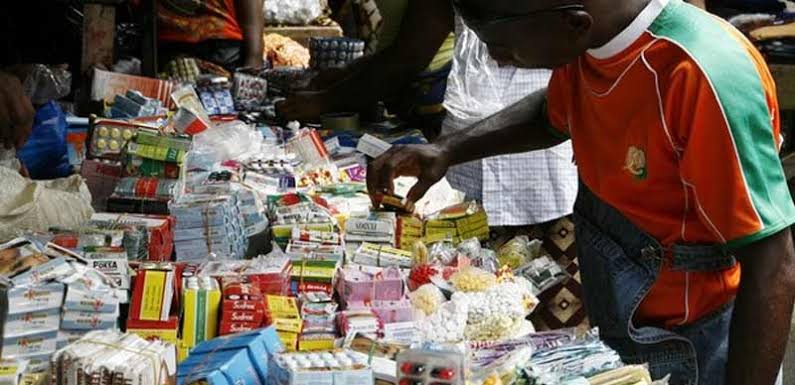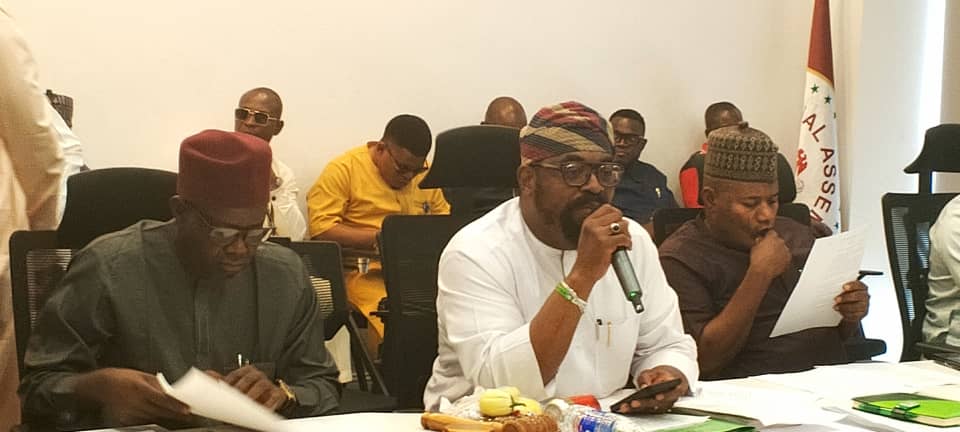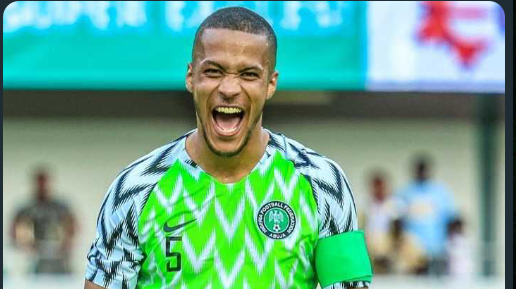By Gloria Ikibah
Stakeholders have rejected the establishment of Nigerian Marine Corps at t
a public hearing organised by the House of Representatives Committee on Navy, Monday in Abuja.
Lawmakers, Nigerian Navy, Nigerian Maritime Administration and Safety Agency (NIMASA), Nigerian Shippers Council and several Civil Society Organisations (CSOs), all spoke against a Bill for an Act to establish Nigerian Marine Corps.
The Bill, which seeks to promote maritime security and enhance the safety of the blue economy of Nigeria, titled “A Bill for an Act to Establish Nigerian Marine Corps to Promote Maritime Security (HB 225)”, was sponsored by Rep. Alex Egbona (Cross River), passed second reading on the floor of the House on Thursday, 30th November, 2023, and was referred to the House Committee on Navy for a public hearing.
Speaking against the Bill Rep. Philip Agbese, Member representing Ado/Okpokwu/Ogbadibo Federal Constituency, said the Bill proposes to create a new federal body tasked with maritime law enforcement and defense responsibilities traditionally managed by the Nigerian Navy and other existing agencies, such as NIMASA, and would amount to duplication of functions, if allowed to scale through.
Agbese who spoke on behalf of 66 other Members emphasised that, it was their duty to critically examine proposed legislation with a view to ensure its aligns with the best interests of the nation and to avoid the creation of unnecessary or duplicative structures within government agencies.
“Acting under the mandate to promote efficient governance and resource management, we hereby call for the total and complete rejection of the bill proposing the establishment of the Nigerian Marine Corps.
“It is our contention as Members of this legislative body that the creation of this new entity would only result in significant overlap, redundancy, and logistical strain, creating operational inefficiencies and imposing unwarranted financial demands on the government.
“The proposed Act outlines the creation of a maritime enforcement agency charged with enforcing or assisting in the enforcement of federal laws on, under, and over Nigeria’s high seas and other waterways, Exclusive Economic Zone (EEZ) and required to maintain a state of readiness to function as a specialized service within the Nigerian Navy in times of war. This proposed body raises multiple operational, economic, and strategic concerns particularly in the areas of jurisdictional conflicts, wartime readiness, legal authority, and environmental management.
“We have thoroughly examined this bill and its objectives and we assert that the establishment of a Nigerian Marine Corps is both redundant and counterproductive, given the existing roles, mandates, and capacities of the Nigerian Navy and other maritime agencies.
“We therefore firmly and unequivocally call for the total defeat of the bill and a recommendation for its immediate withdrawal, while highlighting the compelling need to prioritize efficiency, fiscal responsibility, and coherent maritime governance”.
Representing of the Nigeria Police Force, SP Nandom Vongjen, Staff Officer Marine Section, described the Bill as ill-advised, and stressed that it does not only lead to duplication of duties, which a section of the Force is currently undertaking, but it would result to proliferation of maritime security outfits and tantamount to a parallel unit of the armed forces of Nigeria.
“The proposed Nigerian Marine Corps, while well-intentioned, has the potential to create more problems than it solves. A more prudent approach would be to strengthen existing agencies and optimize their capabilities to ensure effective maritime security. By streamlining existing structures and fostering inter-agency cooperation, Nigeria can enhance its maritime security capabilities without incurring unnecessary costs or creating additional bureaucratic hurdles”, he said.
In their separate submissions, the Chief of Training & Operations of Nigerian Navy, Rear Admiral Olusegun Ferreira; Coordinator, NIMASA, Abuja Zonal Office, Mrs. Moji Jimoh and Director, Legal Services, Nigerian Shippers Council, Mr. Bala Saleh; underscored the need to strengthen the already existing agencies, rather than creating new ones which could pose more security threats to the nation.
All the Members of the Civil Society Organisations who attended the public hearing, spoke against the Bill, urging the House to kill the Bill during the third reading, describing it as unnecessary.
Earlier Chairman, Committee on Navy, Rep. Yusuf Gagdi, in his opening remarks said establishing the Nigerian Marine Corps is a strategic initiative to enhance the country’s maritime prowess, protect our waters, and foster a secure environment for trade and economic growth.
According to Rep. Gagdi the bill represents a proactive step towards safeguarding our national interests and ensuring the safety of the coastal and marine environments.
He stressed the need for collaboration and dialogue in shaping the future of the nation’s maritime safety and security.
“Establishing the Nigerian Marine Corps is not merely a legislative effort but a strategic initiative to enhance our maritime prowess, protect our waters, and foster a secure environment for trade and economic growth.
“Given Nigeria’s vast maritime resources and the increasing threats to maritime security, this bill represents a proactive step towards safeguarding our national interests and ensuring the safety of our coastal and marine environments,” he said.
Speaker Tajudeen Abbas, said the hearing represents another step in the shared commitment to the democratic process and collective resolve to advance the security, stability, and prosperity of our great nation.
He said the focus on marine intervention is firmly rooted in the legislative agenda of the 10th House of Representatives, particularly in our goals of Economic Diversification and Agricultural Development.
“Central to these goals is the exploration and sustainable development of the Blue Economy. This aligns closely with our commitment to addressing Climate Change and promoting Environmental Sustainability. Among other efforts, this includes engaging stakeholders to review the National Oceans Policy, which emphasizes the sustainable management and conservation of Nigeria’s marine and coastal resources.
“Today’s hearing, however, centres specifically on maritime security—an essential pillar for harnessing the full potential of Nigeria’s maritime sector. The proposed bill seeks to establish a Nigerian Marine Corps to safeguard national maritime and related infrastructures, protect our territorial waters and coastal lands, and enhance security mechanisms within Nigeria’s maritime domain.
“Globally, nations have recognized the importance of dedicated marine forces in securing their maritime interests. The United States Marine Corps, the Russian Naval Infantry, and the South Korean Marine Corps are prime examples. These entities provide invaluable support for amphibious operations, maritime security, and national defence. Our vision for the Nigerian Marine Corps is no different. This is not merely about creating another military branch but establishing a specialized and well-trained unit to address Nigeria’s unique maritime challenges and opportunities.
“The realities of our time demand bold action. Global peace is increasingly fragile, and Nigeria faces security challenges exacerbated by its proximity to regions of instability. As such, it is pragmatic and necessary for Nigeria to bolster its military capabilities, with a strong emphasis on naval warfare and maritime security.
“However, this is not solely a matter of defence. The Marine Corps, as envisioned in this bill, will also play a pivotal role in promoting climate and environmental sustainability. By aiding in the management and conservation of Nigeria’s coastal resources, the Corps will contribute to the broader national and global agenda of environmental stewardship,” he said.
However stakeholders at the hearing kicked against the bill.
Those who spoke on behalf of the CSOs include, Abdullahi Bilal, Spokesman for Security Analysts & Research Forum in Africa; Okwa Daniel, Executive Director, Centre for Social Justice, Equity & Transparency; Daniel Momoh Prince, National President, Nigerian Unemployed Youth Association; Igwe Ude-Umanta, Convener, Coalition of Civil Society Organisations on Economic Watch; Opialu Fabian, Executive Director, Centre for Human Rights & Advocacy in Africa Network; amongst others.
While adjourning the hearing, the Chairman, assured Nigerians that due diligence would be done in carrying out legislative actions on the Bills, saying, the Committee was an impartial body and as such, would not take sides in doing its work.
Related





 News15 hours ago
News15 hours ago
 News15 hours ago
News15 hours ago
 News16 hours ago
News16 hours ago
 News15 hours ago
News15 hours ago
 News12 hours ago
News12 hours ago
 News19 hours ago
News19 hours ago
 News19 hours ago
News19 hours ago
 News19 hours ago
News19 hours ago







